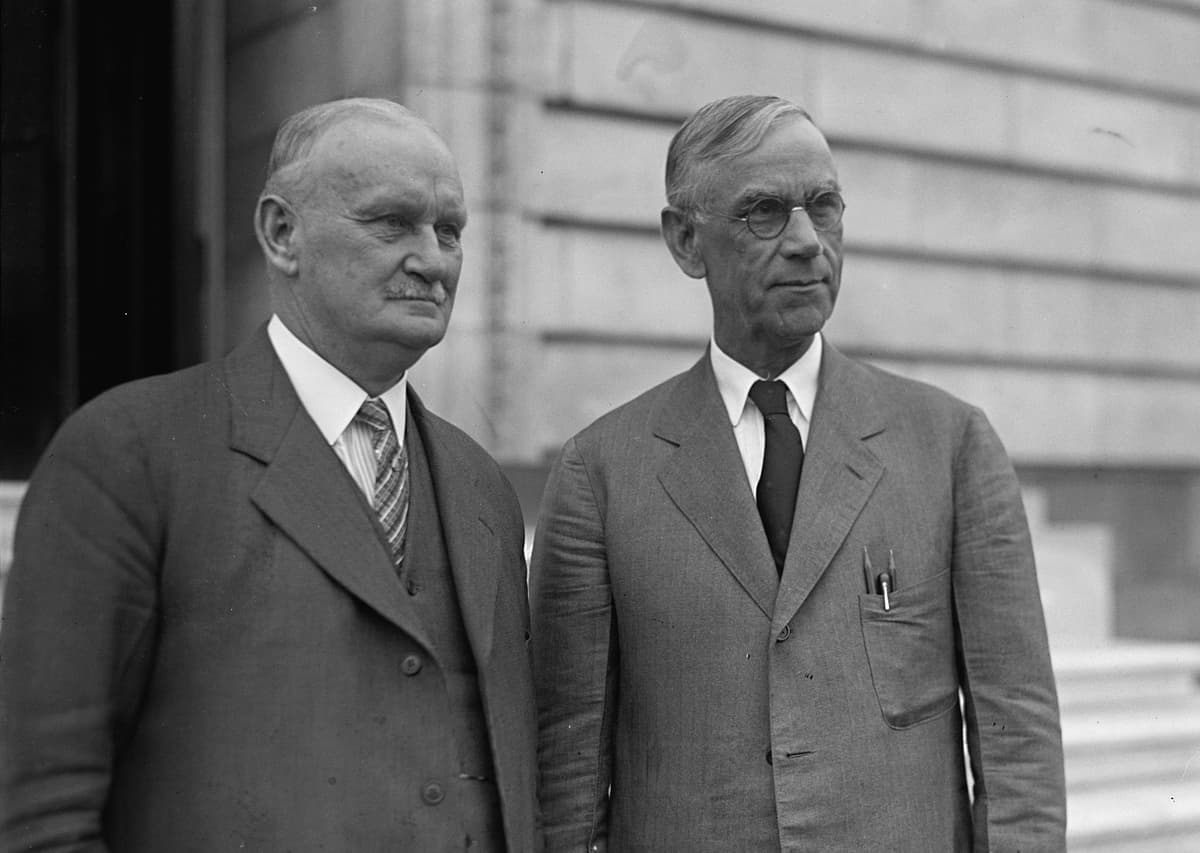Smoot–Trump?
The Republican candidate wants a ‘pro-America trade policy,’ and good for him. He might, though, want to check with the historians.

President Trump is calling for a “pro-America trade policy,” meaning a return of tariffs that will protect domestic industry. The idea has a venerable pedigree, Trump noted, pointing to President McKinley, who reckoned that tariffs had made American life “sweeter and brighter.” Sages as far back as Hamilton have backed nurturing native industry behind a tariff wall. Yet the last time we experimented with a tariff shield, the results were disappointing.
That was in 1930, with the tariff legislation nursed in the Congress by Senator Smoot of Utah and Representative Willis Hawley of Oregon. The tariff bill named after these solons, Smoot–Hawley, became a byword for unintended consequences. That’s because their bill roughly doubled tariffs — up to 50 percent in some cases. The idea was to shield American farmers and industry from competition. It ended up inciting a trade war.
It started because America’s trading partners, rather than sitting by, decided to raise their tariffs, too. So not only did Smoot–Hawley curb imports into America — it caused our exports to tumble as well. Trade between America and Europe fell by some two-thirds as a result. American exports “nosedived,” the Wall Street Journal’s George Melloan wrote in his history of the era, to $1.7 billion in 1933 from $5.2 billion in 1929.
Figures like that are among the reasons why historians reckon the Smoot–Hawley tariff helped cause the 1929 stock market crash to turn into the Great Depression. At the time, the Sun was initially skeptical of the tariff bill as it moved through Congress. American public opinion “is strong for protection,” the Sun wrote in an editorial on June 4, 1929, but not high tariffs which would “mean higher living costs and the disturbance of business.”
The Sun’s editorial warned that the Republican party would “be held responsible” for a tariff bill that “destroyed” the “relationship between wages and prices.” It urged President Hoover “to save the party from the folly of the Congress.” Yet as debate stretched on for months, the Sun’s editors came to take on a more bemused tone, noting how the solons of both parties had dropped “the old patter about free trade” in favor of “local interest.”
“Democrats and Republicans have been for a high tariff for whatever it is their respective States produce,” a March 1930 editorial rumbled, “and indifferent, if not hostile, to high rates for whatever their States do not produce.” Yet while the Sun’s news columns warned Europe threatened a “Tariff War,” a Sun editorial dismissed the “tumultuous words about foreign discontent.” Such threats “the American people have heard many times before.”
A June 1930 editorial urged Americans to “Give the new tariff a chance,” with an unwonted slammer,* to boot. Messrs. Smoot and Hawley’s tariff “has its faults,” the Sun conceded. Yet “the dangers of a high tariff are never as great as those of a low one.” If any “defects appear,” the Sun editorialized, they could be fixed. “Meanwhile the tariff should not be blamed for the vagaries of the stock market or the incidence of Mumps.”
Tariffs might again sound enticing, in part as a cudgel against Communist China, which joined the World Trade Organization under terms that let it manipulate its currency and subsidize domestic industry. Tilting the rules of global trade caused the “China Shock” — the loss of millions of American jobs and the spoliation of our industrial heartland. Reversing that will require revising the terms of China’s engagement in the world trade system.
America’s free trade policies were forged after World War II when our manufacturing prowess was just proven as the “Arsenal of Democracy.” No longer did American industry need to hide behind its 19th-century tariff wall. Given a level playing field, then as now, and a stable dollar, American manufacturing can go head-to-head with any other nation’s. The challenge today is to fix the foreign trade practices stifling native industry — not to shield it with tariffs.
________
* Exclamation point.

